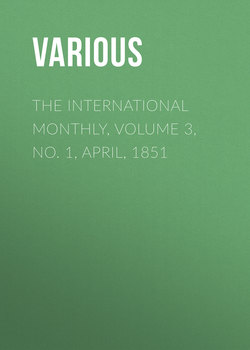Читать книгу The International Monthly, Volume 3, No. 1, April, 1851 - Various - Страница 7
CONTRASTED PORTRAITS OF MARIE ANTOINETTE
ОглавлениеIn the last number of The International we quoted the remarks of Lord Holland upon the character of the wife of Louis XVI. The sketch presented by the noble author has been the subject of much and various criticism. The London Times says:
"The virtue of the unfortunate consort of a most unhappy monarch is without a flaw. Enmity, hatred, and every evil passion, have done their worst to palliate murder and to blacken innocence, but the ineradicable spot cannot be fixed to the fair fame of this true woman. Faultless she was not. We are under no obligation to vindicate her imprudent, wilful, and fatal interference with public questions in which she had no concern; we say nothing of her ignorance of the high matters of state into which her uninformed zeal conducted her, to the bitter cost of herself and of those she loved dearest on earth; but of her purity, her uprightness, her beneficence, her devotion, her sweet, playful, happy disposition, in the midst of those home endearments, which were to her the true occupation and charm of life, there cannot exist a doubt. Misfortune fell upon her house to strengthen her love and to confirm her piety. Persecution, imprisonment, calamity that has never been surpassed, and a dreadful end, which, in its bitterness, has seldom been equalled, found and left her, a meek but perfect heroine. One historian has told us, that as 'an affectionate daughter and a faithful wife, she preserved in the two most corrupted courts of Europe the simplicity and affections of domestic life.' It is sufficient to add, that she ascended the scaffold enjoining her children to a scrupulous discharge of duty, to forgive her murderers, to forget her wrongs; and that her last words on earth were directed to the beloved husband who had preceded her, whose spirit she was eager to rejoin, yet whose bed, if we are to believe my Lord Holland, she had oftener than once defiled."
And The Times intimates elsewhere that Lord Holland is alone among reputable authors in condemning the Queen. How The Times regards Thomas Jefferson, we cannot tell, but certainly it is claimed by our democracy that he was a witness with a character. Jefferson says of Marie Antoinette:
"The King was now become a passive machine in the hands of the National Assembly, and had he been left to himself, he would have willingly acquiesced in whatever they should devise as best for the nation. A wise constitution would have been formed, hereditary in his line, himself placed at its head, with powers so large, as to enable him to do all the good of his station, and so limited, as to restrain him from its abuse. This he would have faithfully administered, and more than this, I do not believe, he ever wished. But he had a Queen of absolute sway over his weak mind, and timid virtue, and of a character, the reverse of his in all points. This angel, as gaudily painted in the rhapsodies of Burke, with some smartness of fancy, but no sound sense, was proud, disdainful of restraint, indignant at all obstacles to her will, eager in the pursuit of pleasure, and firm enough to hold to her desires, or perish in their wreck. Her inordinate gambling and dissipations, with those of the Count d'Artois, and others of her clique, had been a sensible item in the exhaustion of the treasury, which called into action the reforming hand of the nation; and her opposition to it, her inflexible perverseness, and dauntless spirit, led herself to the guillotine, drew the King on with her, and plunged the world into crimes and calamities which will for ever stain the pages of modern history. I have ever believed, that had there been no Queen, there would have been no revolution. No force would have been provoked, nor exercised. The King would have gone hand in hand with the wisdom of his sounder counsellors, who, guided by the increased lights of the age, wished only, with the same pace, to advance the principles of their social constitution. The deed which closed the mortal course of these sovereigns, I shall neither approve nor condemn. I am not prepared to say, that the first magistrate of a nation cannot commit treason against his country, or is unamenable to its punishment; nor yet, that where there is no written law, no regulated tribunal, there is not a law in our hearts, and a power in our hands, given for righteous employment in maintaining right, and redressing wrong. Of those who judged the King, many thought him wilfully criminal; many, that his existence would keep the nation in perpetual conflict with the horde of Kings, who would war against a regeneration which might come home to themselves, and that it were better that one should die than all. I should not have voted with this portion of the legislature. I should have shut up the Queen in a convent, putting harm out of her power, and placed the King in his station, investing him with limited powers, which, I verily believe, he would have honestly exercised, according to the measure of his understanding. In this way, no void would have been created, courting the usurpation of a military adventurer, nor occasion given for those enormities which demoralized the nations of the world, and destroyed, and is yet to destroy, millions and millions of its inhabitants."
A majority of the French authors of the time agree with Mr. Jefferson.
